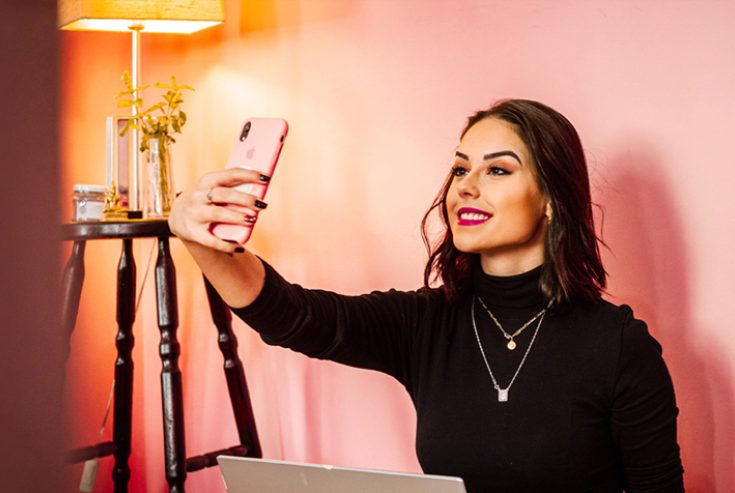Corporate & Commercial Solicitor, Jonathan Masucci looks at the benefits of formal contracts such as Social Media Brand Ambassador/Influencer Agreements as well as at other ways to structure an Influencer/Brand Owner relationship.
If you are an influencer building a following and looking for ways to monetise your social media influence or a brand that wants to access and make more use of the benefits of social media marketing you are likely to need to think about how to protect yourself legally. The channels may be relatively new, but many of the legal challenges the arrangements throw up aren’t.
The evolving world of product promotion
We are all very aware particularly after the many challenges faced by a year of lockdowns and living virtually, that the world of product promotion has evolved. There’s no denying that influencer marketing is also increasing worldwide. In 2018, the market size of the global influencer marketing platform was valued at an estimated $4.6 billion and was set to grow annually by more than 25% from 2019 to 2025. Bearing in mind this estimate was pre-COVID-19 and since the onset of the pandemic, many populations have faced unprecedented restrictions on travel and as a result, have resorted to shopping online more frequently, it is not unreasonable to expect this projection to be somewhat lower than it will actually turn out to be in practice.
What is an Influencer/Brand Ambassador?
Google “what is an influencer?” and you’re likely to find no single definition but, for the purposes of advertising, the UK’s Advertising Standards Agency sets out that social media users don’t need a particular number of followers or a particular occupation to count as an “influencer”. It goes on to say that an influencer is anyone who has been paid by a brand to advertise a product on their own social media. So, as an example, a social media user who has as few as 30,000 followers on Instagram and is being paid by a brand to advertise a product, would be seen as an “influencer”. The influencer will also have an established credibility and audience that they reach out to with frequent posts on a given area of interest such as fitness, fashion, gaming, sports etc. together with their own discount codes for followers to use on selected brands.
They are effectively celebrities of the digital age.
Why is all this important to a brand?
Well… the simple fact is that today’s consumers are exposed to a variety of marketing. It’s everywhere. From the more traditional forms of marketing such as flyers through your letterbox and adverts between your favourite TV shows (which if you are like me, tend to end up in the recycling or being skipped), to online marketing appearing throughout our social media feeds thanks to cookies tracking our online shopping habits, it is difficult to escape. As a result, it’s become more challenging for consumers to make informed decisions when there is so much information (perhaps too much information) available and so we tend to look to individuals we trust and identify with to assist with our decision making. As a result, for a business with a particular style of branding, being able to find and engage with the right influencer who can act as their brand ambassador and promote their products could be the start of a very successful and mutually beneficial business relationship.
The brand owner will benefit from the influencer not only having the potential to engage a global internet audience that would otherwise take the brand far longer in terms of time and expense, to build up itself but also an audience that is aligned with its target demographic. The influencer will also benefit from advertising the brand which in turn, allows them to continue to expand and develop their own online personal branding, influence and revenue; this ultimately benefits the brand which is able to reach a wider target audience via the influencer. Finally, the consumer is offered a more personalised experience in terms of receiving content about products and brands they are interested in.
What is a Social Media Brand Ambassador/Influencer Agreement?
It is common for influencers and brand owners to come to a formal arrangement. The purpose of this formal type of agreement is no different to any other kind of commercial contract. Its purpose is to clearly and precisely document the legal obligations of the parties so, should the relationship not work out or issues arise, the parties have a clear documented record of what was agreed.
Common areas of concern for the brand owner will be:
- defining what the influencer is required to do in order to promote the brand (e.g. the frequency of online posts as well as avoiding posting content that could damage the brand image) and how this will tie in with the influencer’s other commitments
- confirming the territory and social media platforms the influencer will be required to provide marketing services on.
- obtaining any intellectual property rights created by the influencer in the course of them providing the services and to ensure that intellectual property rights belonging to third parties are not used by the influencer without third parties’ consent (with the most obvious example being a video of an influencer which contains music from a popular artist in the background).
Conversely, the influencer’s key areas of importance in such an agreement will most often be focused around what they will need to do in terms of marketing, together with when and how much they will be paid for providing their services over the course of a single post or advertising campaign.
What other ways are there to structure an Influencer/Brand owner relationship?
Although a Social Media Brand Ambassador/Influencer Agreement is likely to be the most appropriate contract for influencers and brand owners to enter into, this presumption is based on the general online brand promotion and marketing through individuals on a social media model.
Celebrity Endorsement Agreement: Where brand owners require public appearances at promotional events or televised appearances as the focus of the commercial arrangement instead of social media posts, it may be more appropriate depending on precisely what is required, for the parties to enter into a Celebrity Endorsement Agreement (which is fairly similar but tailored more towards public figures in mediums outside of social media), or even a combination of the two types of agreement, to accurately record what the brand owner requires of the influencer.
Joint Venture: Where brands require assistance from the influencer to develop a product or service that is for a particular demographic, the relationship might go beyond a mere advertising/promotional role for the influencer and as a result, a more comprehensive business structure such as a joint venture, may be more appropriate in adequately protecting both parties’ interests.
Expert legal advice
Whether you are a business seeking to engage an individual in the public domain in order to promote a particular product brand, a social media influencer or celebrity that has been approached to work with a brand in advertising their products and require advice on how best to proceed with the commercial relationship, we can help.
Please do not hesitate to contact our Commercial Law experts Caroline Armitage or Jonathan Masucci, with any questions or queries you might have.
Girlings has offices in Ashford, Canterbury and Herne Bay.






















